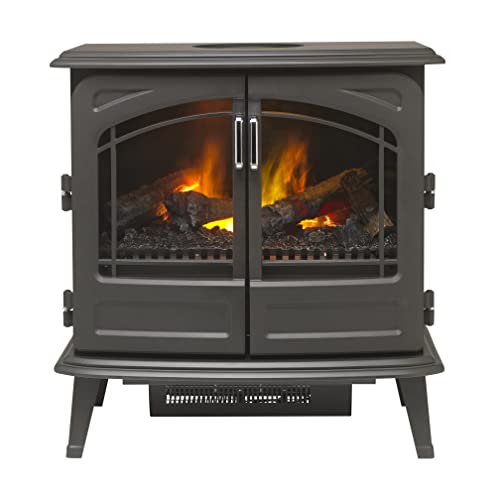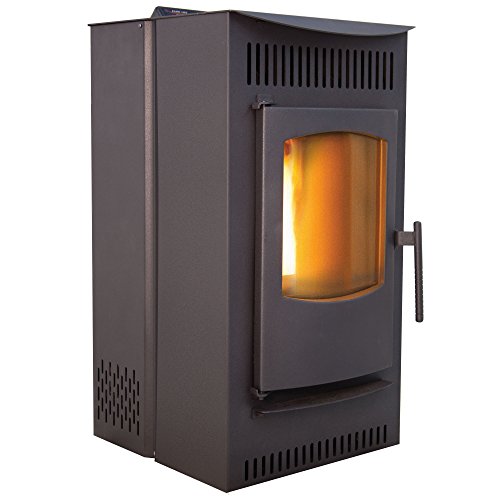The History Of Electric Stove Fire In 10 Milestones
페이지 정보
작성자 Jaunita 작성일24-02-05 22:02 조회7회 댓글0건관련링크
본문
 Causes of Electric Stove Fires
Causes of Electric Stove Fires Electric stoves are useful however they can cause fires that can cause hundreds of dollars of destruction and could even kill. A malfunctioning electrical system could cause a fire to begin on the stove or in an area nearby.
Electric stoves are useful however they can cause fires that can cause hundreds of dollars of destruction and could even kill. A malfunctioning electrical system could cause a fire to begin on the stove or in an area nearby.Use the following safety precautions to avoid these kinds of fires.
Damaged Electrical Outlets
Electrical outlets that have been exposed to water, or burned, could short circuit. This causes the wires to heat and start to burn. This can be a fire hazard, and your stove could catch fire. If you observe any signs of a damaged outlet turn off the power at the circuit breaker and call an electrician immediately.
You should also be looking for red flags like discoloration around the outlet melted plastic, or burning smells. If you hear a loud popping noise, this is another indicator that the outlet should be replaced.
Each electrical conductor can handle a certain amount of current. If you plug a large machine into an outlet that isn't supplying sufficient electricity, the conductor will overheat and start to burn. In time, this could lead to an ignition that could cause damage to your wiring and cause fire in your electric stove or other appliances.
If you live in an older home that has a wiring system that is outdated, it is also an issue. These systems that aren't up to date may not be able support the electricity demands of your appliances, which could overload the circuit and cause fire. If you have older wires it is essential to schedule regular electrical inspections.
The overheating of a plug-in appliance is the most common cause for an electrical outlet to catch fire. This overheating can occur when the heat produced by the appliance causes the cords to melt or the insulation to wear down. This can be a dangerous situation because the hot wire can ignite and cause fires in your stove, or in other appliances.
If you suspect that your stove is overheating, you should immediately switch off the power source to the stove and apply a fire extinguisher to any small flames to help contain them. If you are unable to put out the fire, leave the building and dial 911 from a safe place. If you do opt to use an extinguisher for fire, make sure to aim it at the base of the fire, and not at the flames themselves because this could cause them to spread.
Unsafe Wiring
A faulty wiring system is the primary cause of electrical house fires. Wires that are worn out and damaged can overheat and melt, causing fires. This could result in serious injuries and property damage. To prevent problems like this, electrical wiring should be inspected and repaired by certified technicians on a regular schedule. Electrical outlets that cause a shock light bulbs, flickering lights, and the smell from burning wires are all indicators of an issue with the wiring. Contact an electrician if detect any of these signs.
The most popular kitchen appliances that can cause an fire in your home include microwaves, toasters, and ovens. These appliances can cause an explosion in your home when connected to outlets that aren't able to handle their power. This is particularly true for older appliances. It is recommended to have a professional electrician inspect your kitchen appliances on a regular basis and make any necessary upgrades to your outlet whenever required.
Kitchen appliances can cause fires if plugged in to extension cords or power strips that are not updated to meet the wattage requirements of modern appliances. These appliances should not be left connected for extended periods of time, or when you are away. Avoid using cooking utensils that are hot close to or on the stove. Also, make sure your children do not play with or wear clothes that could get caught in kitchen appliances.
Electrical fires can be very dangerous. They can cause serious damage to your home, your belongings, and even your family's lives. Be sure to inspect your home for electrical fire hazards on a regular basis. If you have any questions about the electrical wiring in your house or have any problems, don't hesitate to get in touch with a local Sydney electrician. They can assist you with any electrical inspection or repair requirements. They can even help you with electrical panel upgrades and maintenance of smoke detectors, and much more.
Extension Cords
An extension cord is insulated electrical wire fitted with a plug at one end and sockets at the other. They are available in various colors and lengths ranging from two feet up to 100 feet. They are useful when electrical equipment isn't connected to an outlet. However, they can cause fire if they aren't used correctly or if the cords aren't properly disposed of after every use.
Extension cords can become overheated and cause an explosion. This is especially true when they are used to power an electric stove. The overheating can occur when the cords are plugged into an outlet that is not large enough for the cord's capacity or when they are used to power appliances that require more electrical current than the cords are intended for. The cords may also overheat if they are utilized in wet or humid conditions or around oil.
The heat can cause damage to the cord's insulation, causing it to melt or to carbonize. It could also harm the cord's wires, which could pose the risk of fire.
Some extension cords have built-in safety features such as a grounding conductor, a lighted plug, a connector box, and multiple sockets. Some extension cords have a three prong plug that can only be used in outlets that are specifically designed for it. It's risky to remove the third prong or force a plug in an outlet that was not made specifically for it. This could remove the insulation from the cord and expose the wires which can cause an electric shock or even a fire.
Cords must be checked for damage prior to use, for example, exposed or damaged wires, tangled or bundled up cords, or cracks or loose ends within the plug or socket. It is also important to examine the cords to ensure they are the correct gauge for the task. Cords that are too light for the tool or appliance can overheat and cause fire hazard. If the cords have been damaged, they should be replaced or repaired.
Smoke Detectors
It can be tempting to take out smoke detectors when they start to sound frequently. However, this is risky as it exposes you to fire. Utilize the "test" button on smoke detectors to find out what's causing them to. If you find that it's steam, hairspray or aerosols that are causing the alarms to go off, keep them away from your stove and install an exhaust fan in your kitchen when cooking.
If the test button is not working, make sure the batteries are checked, which may be dead. Replace the batteries and test again. If you are still having trouble, call an electrician.
Smoke detectors are required by the International Residential Code. A lot of communities have additional rules requiring extra detectors for rooms with cheap wood burning stoves burning stoves - find out here - or gas fireplaces, laundry rooms and so on. Contact your local building authorities and ask what rules are in place.
Smoke detectors can be classified as ionization or photoelectric. Photoelectric detectors utilize the use of a light sensor which aims into a chamber that is sensing and detects smoke using reflection. Ionization-type detectors use radioactive material to create ions of air between two electrodes inside the sensor chamber. When smoke is inhaled, particles attach to ions and decrease the flow of current. This triggers the alarm circuit.
Smoke detectors of both types are available in battery-operated and hardwired versions. Smoke alarms that are hardwired are typically connected to a specific circuit for smoke detection. It's or is part of the lighting circuit or an outlet circuit located on the ceiling. Some of these smoke detectors are also connected to a home security system. Typically, these are interconnected so that when one smoke detector goes off then all smoke detectors in the house will sound.
It is possible to install the smoke detectors with a hardwire yourself, but only if you have a lot of experience and know-how of electrical work at home and electrical circuits. To install hardwired detectors and any other electrical project within your home, you should hire an electrician. Smoke detectors are subject to specific rules when you have a sloped roof.
댓글목록
등록된 댓글이 없습니다.




